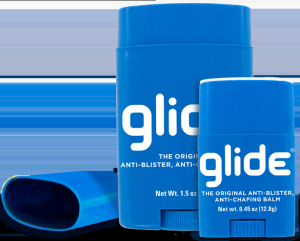I just completed a multi-year study of running and endurance, and the findings are going to completely redefine the sport! This study is probably bigger than the Harvard Love Study and the Kinsey Reports combined! Are you ready to be amazed and completely rethink everything you know about running?
Here are the important take-away findings:
1. Speed and distance are inversely proportional: All of my recent PRs have come on the heals of long runs the previous day. Forget what you know about tapering, and head out for that 20-miler the day before your marathon. Watch the magic happen!
2. Hydration and gastrointestinal Distress are related: I’ve been playing around with my diet for quite some time, trying to figure out why the threat of the runs occurs on my long runs. Then, it hit me. Hydration! I’ve consumed water every single time I’ve had to make a pit stop at a gas station, in the woods, or behind a dumpster. The obvious solution is to simply stop drinking water. You’re welcome, internet!
3. Wind impacts pace: You’ve probably all thought about this anecdotally, and now you have the scientific proof to back up those hunches. Your pace does in fact decrease when running into the wind. That is, unless you push harder and increase your pace to compensate.
4. Bodyglide suppresses lactation in men! This was a rather unexpected finding, but the facts don’t lie. I do my best to avoid chafing on longer runs and apply my Bodyglide consistently. Surprisingly, I’ve never lactated on those days. Now, to my knowledge, I’ve never lactated period, but we’re just talking about running here.

5. Black socks make you run faster: We all know that darker colors absorb more energy from the sun, and solar energy is becoming more and more important as we rip through our remaining coal reserves. It then stands to reason that the solar energy entering my legs is providing more power and energy, and I’m running faster as a result. I went back and looked at race pictures, and sure enough, I’m wearing black socks for all of my fastest races.
Now, you’ve probably figured out by now that these findings aren’t EXACTLY scientific, but they are none-the-less true…at least for me. Sometimes. In the right conditions. If I think hard enough about them. My point here is more of a response to what seems like a constant onslaught of articles, commentaries, and studies that suggest running will do this or that to your body, or running too far will hurt your body, you need this much recovery, or you need to eat this balance of foods. The messages we receive are endless in a media-saturated, social-media intensive society. What’s more, we’ve been trained by Western medicine to assume everything is objective, has a solution, and more than likely involves a pill.
I hate to break it to you but there is no such think as objective research. Everyone involved in every research study made decisions about how to go about their work, what and who to include, and what questions to ask (and thus what questions not to ask). The reality is that humanity is amazing, infuriating, sometimes terrifying, and mostly beautifully diverse. Thus, there are as many “ways” to do something as there are people to do them. Running is simply one of those things.
We’ve gotten away from listening to our bodies. Really stopping to pay attention to not only what hurts so we can tell our doctor, but what feels good, how long something lasts, and what differences exist when we try new things. The beauty, of course, is that we can start doing this any time. It may take some time to flip that switch in your mind, but the benefit is well worth the time. Just as we invest time in hill work, speed work, intervals, and endurance training, we should invest time in listening to our bodies.
There’s certainly nothing wrong with reading the articles that flood our news feeds every day. The trick is not to get so wrapped up in what other people are saying that we stop trusting ourselves to know what’s best for our running, our goals, and our bodies. The findings of that study may just surprise you, and will certainly prove more beneficial to your overall performance!
